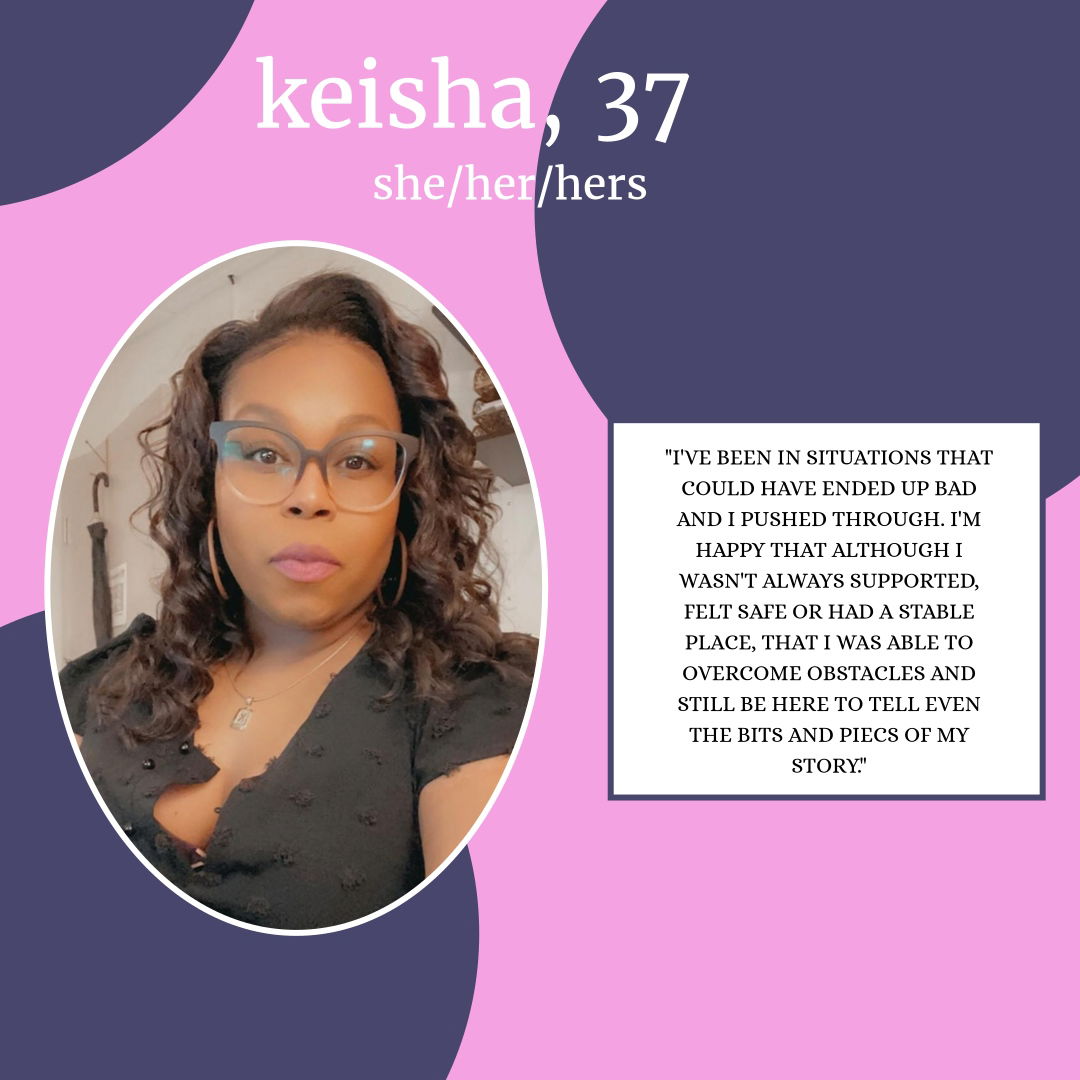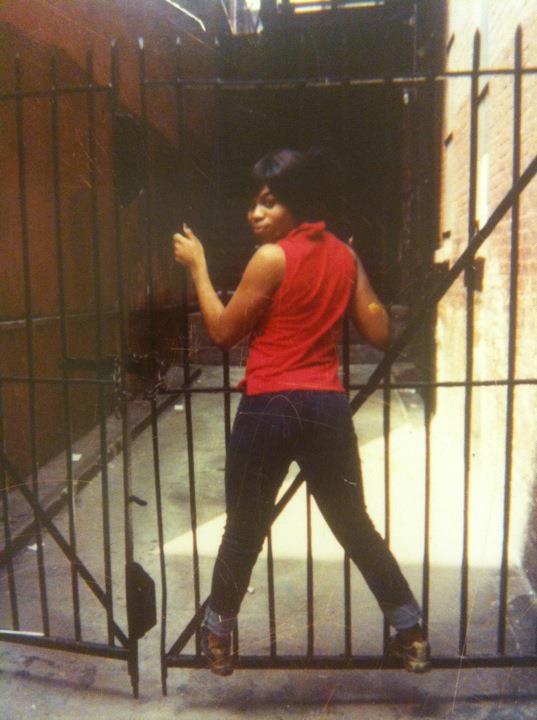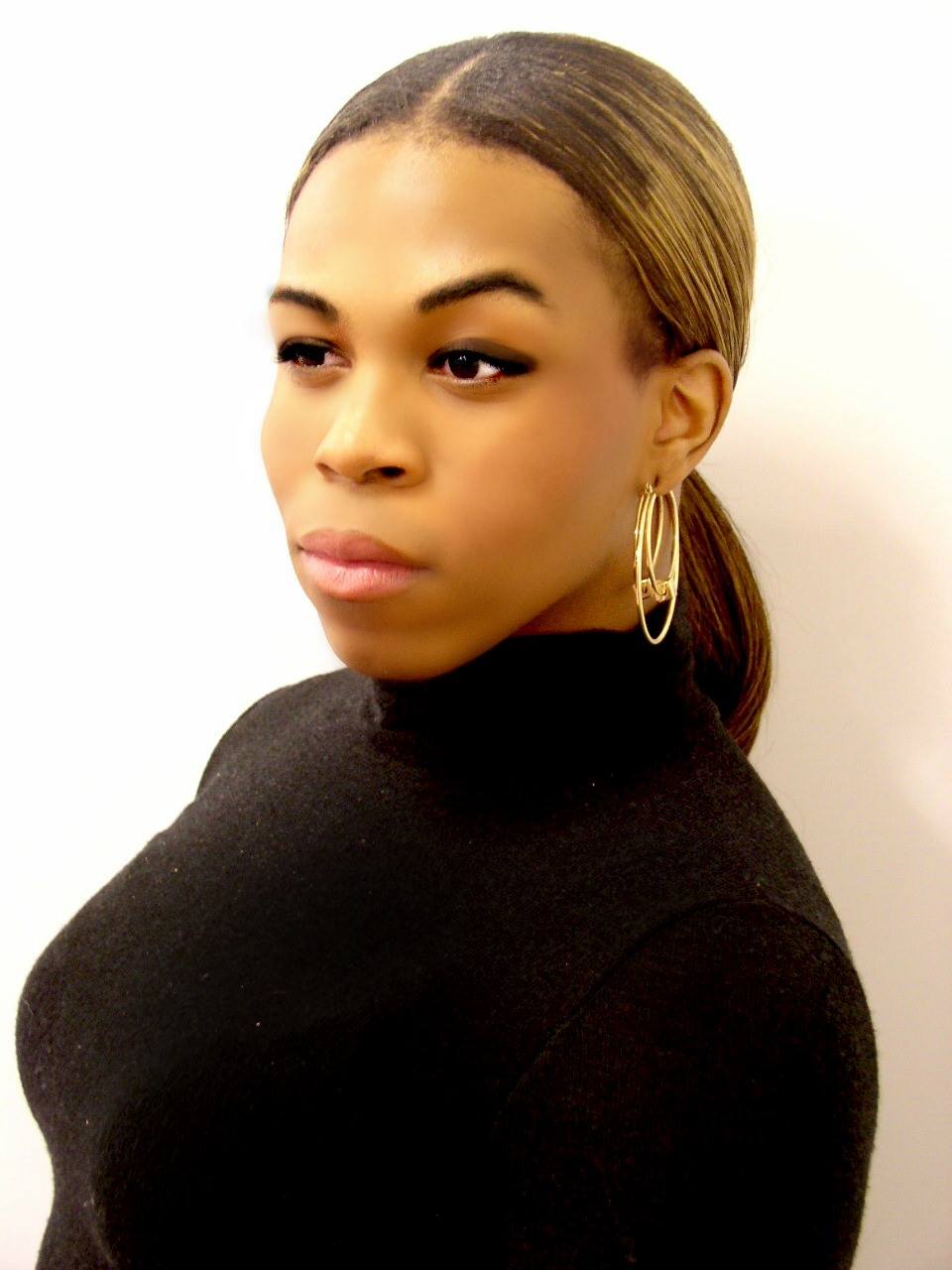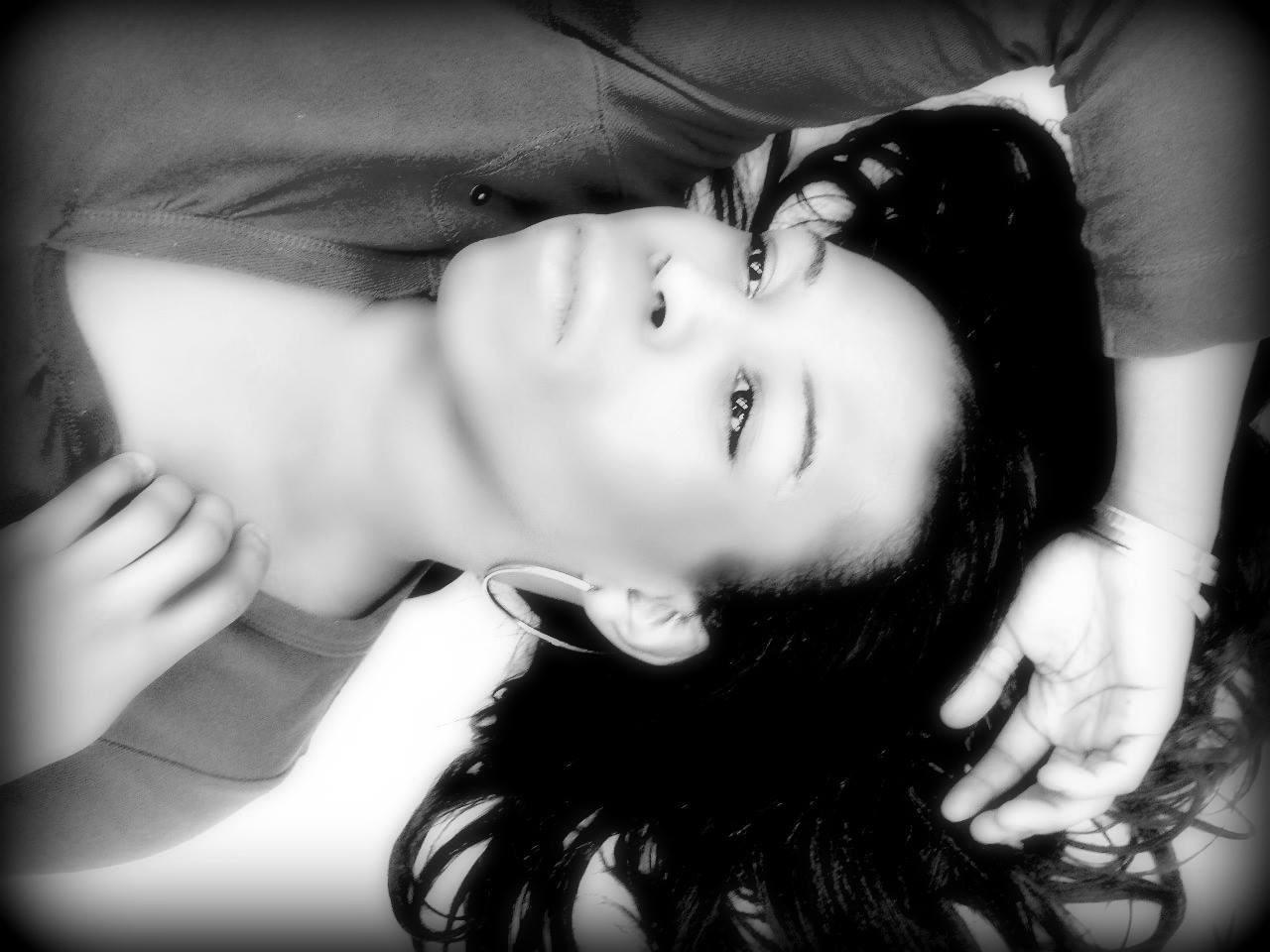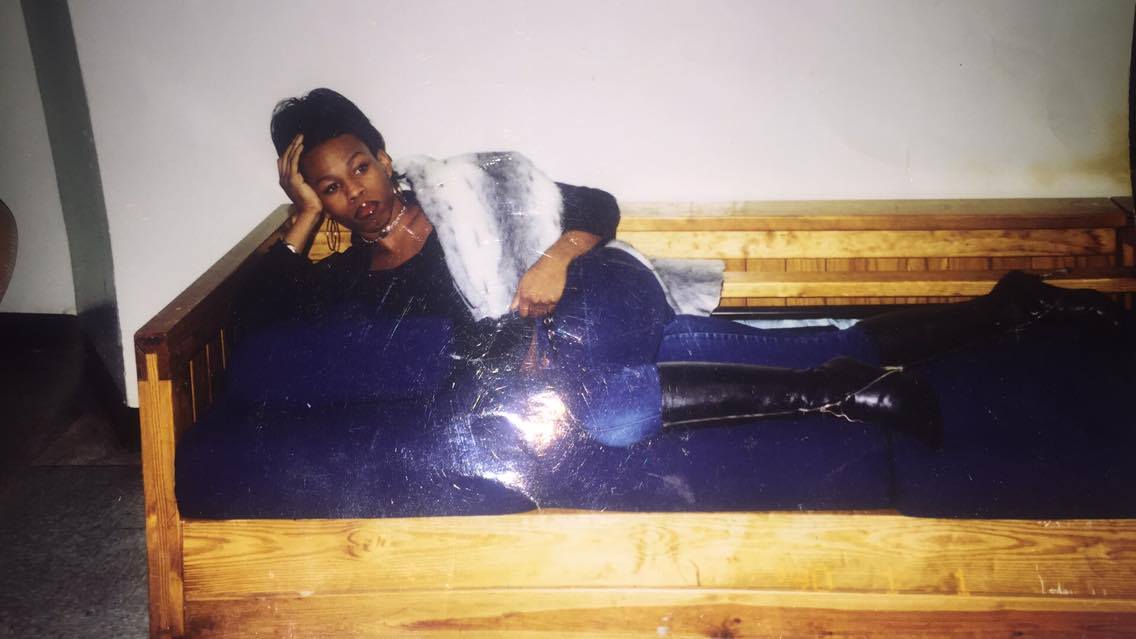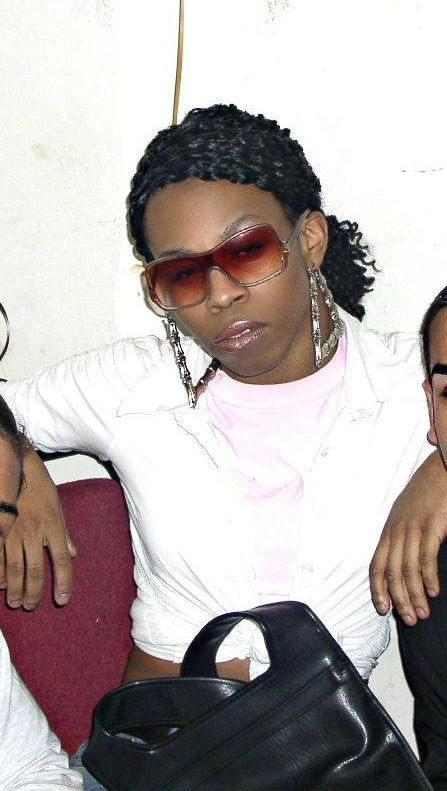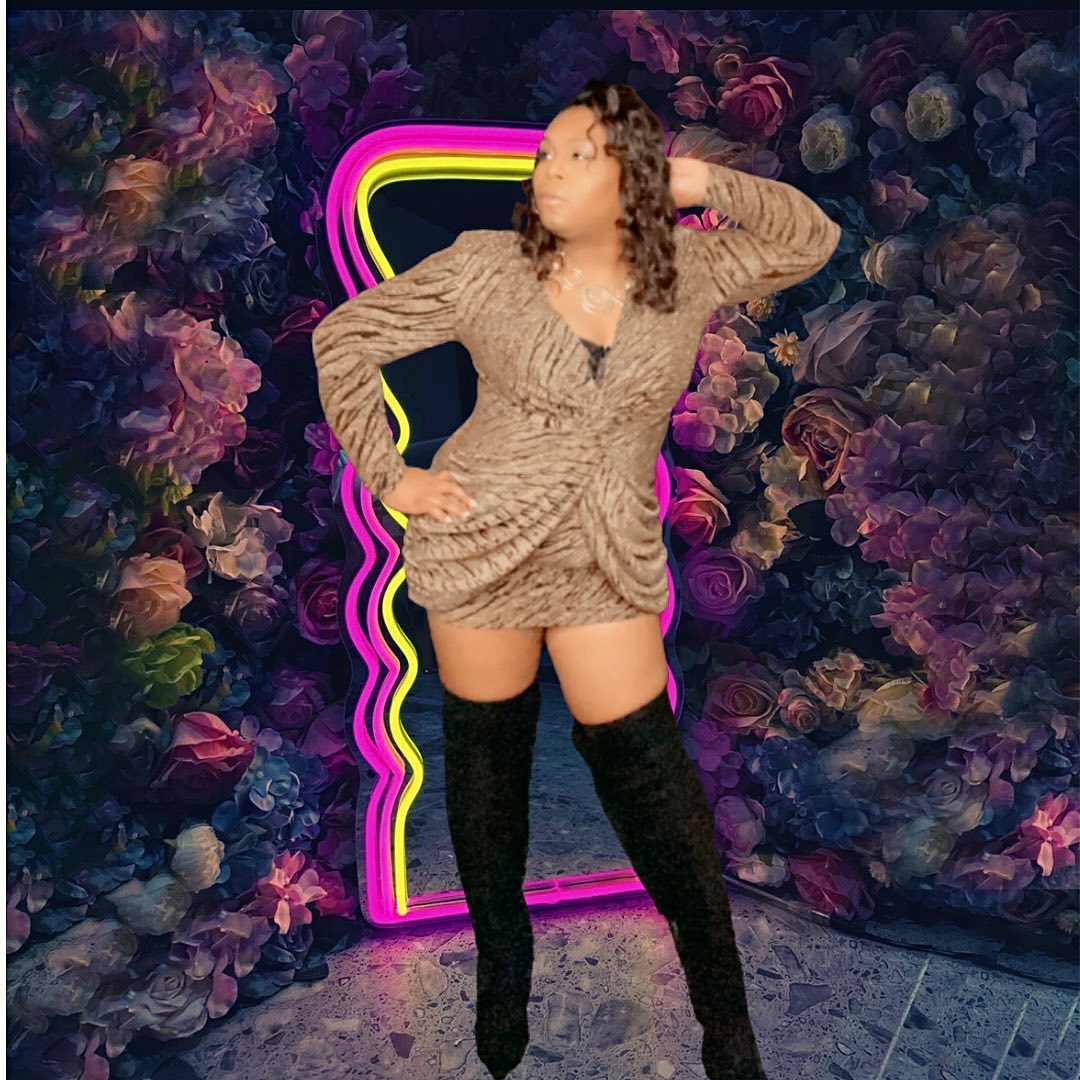Keisha, 37 she/her/hers
Q. What is your name, age, pronouns and how do you identify? Please include any intersectional identities that are important to you and your lived experience. Where did you grow up?
A. Keisha Lewis, 37 years old, Black trans woman, She/her/hers. I grew up in Philadelphia, Pennsylvania.
Q. How old were you when you first became aware that you did not identify with the sex you were assigned at birth? What are your earliest memories of being different from cis kids?
A. I was 13 when I knew and really felt different. I knew that I had an attraction to boys in the way a girl would. I wished I was a girl so I could have a boyfriend. I wanted to wear feminine clothing as I got older. Around 14-15yrs old I began to express myself a little more than others my age. I would wear purses, fitted clothing and I would change my voice to make it more feminine.
Q. What messages did you receive from others about your gender expression? Was it positive, negative or a mixture? Did you try to conform to gender norms and if so, how did this impact you?
A. Well, we are a long way away from the dangerous 1990s lol. For many family members it was “Oh he is just going through a phase.” I didn’t know what a phase was in those days. I just knew I was different and I liked what I liked and I would one day be different and really have attention on me. I would say that I didn’t conform because I did what I wanted to. I think once I started to really show myself was when I was first going into high school. I had what I thought was a chance to finally be myself and boy was I wrong. High School kids are harsh, lol.
Q. How old were you when you discovered language to describe your trans experience? How did discovering language to explain your relationship to gender impact you? How did it impact you to discover that there were other people who also felt similar to you? What were your earliest representations of trans people?
A. Well, the language of my experience came from life, the streets and being a runaway for a short time. Anywhere from ages 14-16. In my early days, the 2000s, we weren’t “trans women.” Society at that time we were “Transvestite” or “Transsexual.” If you grew up in what many call the hood, you were every name in the book from f@ggot #ss, sissy, orwhatever other name people had for you. When it came to life in the scene, we were considered either “drag queen” or “fem queen.” When I started to “dress up” as they say, I never knew there were people who were like me but more experienced. It wasn’t until I was a runaway that I came into contact with Transsexuals. Once I experienced these people I knew then and there I was going to be the woman I wanted to be. To know that there was an actual community of people that were like me blew my mind.
Q. When did you come out as trans? What was this experience like for you?
A. So from 1999-2002 I was what the people called a drag queen, not Too Wong Foo style of drag, but a boy who wore girl clothes every day. As for me making the decision that it was permanent for me and that I was going to be a woman, all that took place in 2002. I had been living in a group home and around this time was when I had my very first visit back to Philly since being sent away. The experience at that time was a good one. I was able to finally show people how different I looked. Some were still shocked, some were mad and some surprisingly were accepting. The experience was like theWeather - FAIRLY PARTLY CLOUDY lol.
Q. Were you able to access what you needed in order to socially and/or medically transition at that time?
A. To start my transition socially I would rely on street hormones or girls who we called “mone doctors” who would sell you prescription hormones they scored from a supplier. As I got older and involved in things a little risky I was able to buy direct hormones from a Canadian online pharmacy. I actually did not have consistent medical care as a trans woman until I turned 23.
Q. Is there anything you would like to say to trans youth reading your story?
A. At the age of 37 I want trans youth, mtf-ftm, to know that you are beautiful. Know that you’re a butterfly, allow yourself to go through the stages of life and know that there is actually light at the end of the tunnel. Be easy on yourself and don’t let life and people stop you from living in your truth.
Q. What would you like to say to people who believe that it is wrong to provide trans youth with gender-affirming care?
A. Well, my mouth is nasty so I think for me personally, people should F#ck Off and blow it out their @sses!!! Lol. My question to them is: Why shouldn’t they receive gender-affirming care? What makes this child less than your child? If your child can receive care in their own way, then so should a trans child. F#ck off.
Q. What does trans joy look like in your life today?
A. I honestly don’t know what trans joy looks like in my life. I think I am simply happy to be here. No matter how stressful life is, I’m happy to still be here today. I’ve been in situations that could have ended up bad and I pushed through. I’m happy that although I wasn’t always supported, felt safe or had a stable place that I was able to overcome obstacles and still be here to tell even the bits and pieces of my story.
